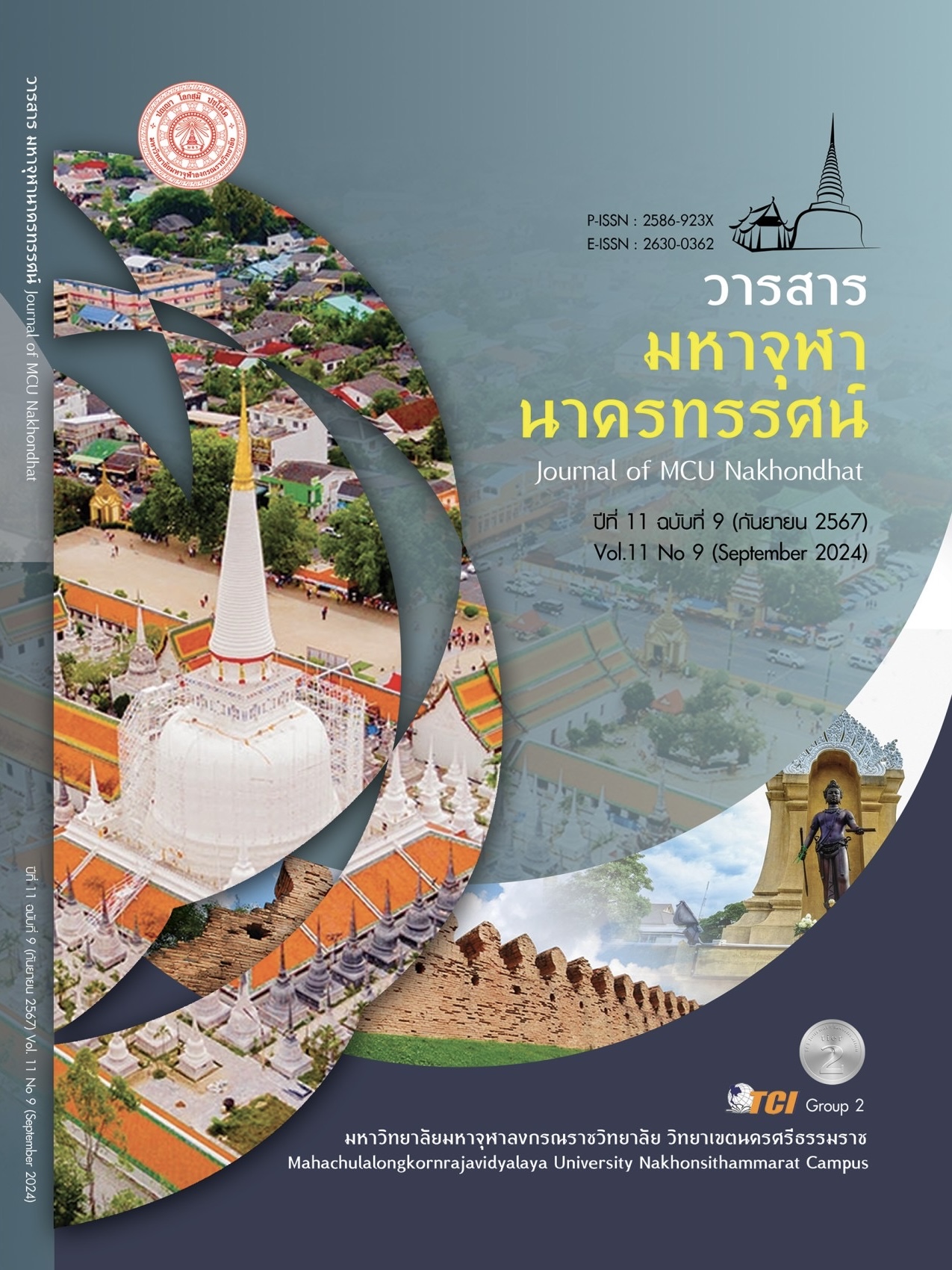STRATEGIES FOR DEVELOPING THE CULTURAL LEADERSHIP OF PRINCIPALS UNDER THE BACKGROUND OF HIGH-QUALITY EDUCATION DEVELOPMENT IN JIANGSU VOCATIONAL COLLEGES
Main Article Content
Abstract
This purpose of this research was to develop the strategies for cultural leadership development of principals under the background of high-quality education development in Jiangsu vocational colleges. The population of this research was 278 university principals in Guangdong Province, purposively selected. The research instruments were questionnaires with a reliability of 0.95. Data were analyzed by percentage, mean, standard deviation, and content analysis. The results showed that the overall status of cultural leadership of principals of Jiangsu vocational colleges in five aspects was high were that consist of cultural vision leadership, work capability, cultural practice leadership, cultural resources are at a high level, and cultural innovation leadership. The strategy for developing cultural leadership for presidents of Jiangsu vocational colleges under the background of high-quality education development proposed 53 measures from five aspects. First, enhance the sense of responsibility and mission and enhance the working ability of vocational college presidents. Second, the "heart" of cultural leadership, strengthening the cultural vision of vocational college principals, and enhancing the culture of leading schools. The third, the "brain" of cultural leadership, promoting coordination, and strengthening the cultural innovation leadership of professionals. The fifth, the "hand" of cultural leadership, strengthen the leadership in cultural practice of vocational college principals, and promote the development of school culture. The fifth, coordinate the cultural resources of schools and promote the sustainable development of vocational colleges and universities cultural construction. Under the background of the development of high-quality education, the evaluation results of the adaptation and feasibility of the cultural leadership development strategy of Jiangsu Vocational College President.
Article Details

This work is licensed under a Creative Commons Attribution-NonCommercial-NoDerivatives 4.0 International License.
References
Anat, B. & Pascale, B. (2019). School Religious-Cultural Attributes and School Principals’ Leadership Styles in Israel. Journal of Religious Education, 6(3), 96-104.
Bai, H. (2019). Research on the Cultural Leadership of Urban Middle School Principals-Taking Xi'an Middle School Principals as an Example [D]. In Master's Degree Thesis. Xi'an International Studies University.
Lv, L. & Ding, Y. (2022). Research on the Components and Mechanism of Curriculum Leadership of Primary and Secondary School Principal. An Empirical Study Based on PLS-SEM. Journal of Educational Science Edition of East China Normal University, 10(6), 411-416.
Meng, Y. (2021). Cultural Leadership Community in School Transformation. Journal of Education and Management, 12(17), 213-216.
Wang, S. (2022). The Enlightenment of Foreign Civil Codes on the Compilation of Chinese Educational Codes. Taking the Four Modern Civil Codes as the Investigation Center. Journal of Educational Science Edition of East China Normal University, 17(8), 321-328.
Wu, M. (2003). SPSS Statistical Application Practice: Questionnaire Analysis and Applied Statistics. Beijing: Science Press. Journal of Education Management, 4(12), 178-182.
Xiao, T. (2022). The Choice of "The Poor Family": Cultural Reproduction and Resistance in Elite Colleges and Universities. East China Normal University. Journal of Education Science Edition, 10(8), 218-219.
Yu, T. (2020). Research on Information Technology Leadership of Primary and Secondary School Teachers. Journal of Doctoral Dissertation of Shanghai Normal University, 13(8), 333-336.
Zhao, M. & Xu, L. (2022). Research Status and Path Innovation of High-quality Vocational Education Development. A Review Based on Practical Philosophy. Journal of Jiangsu Higher Vocational Education, 12(4), 320-325.
Zhou, H. & Li, Y. (2022). On building a high-quality education system. Journal of Modern Education Management, 7(5), 454-455.


